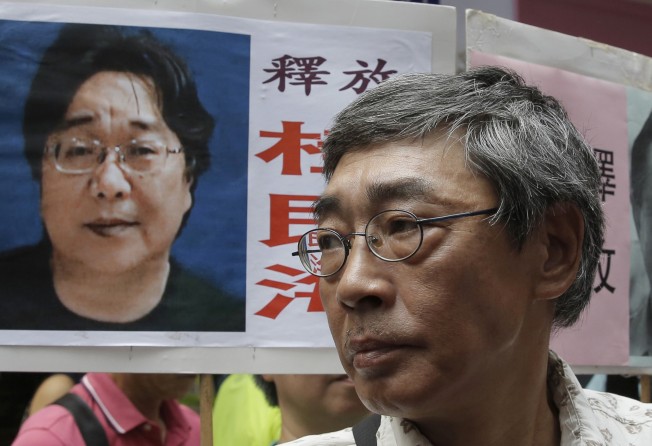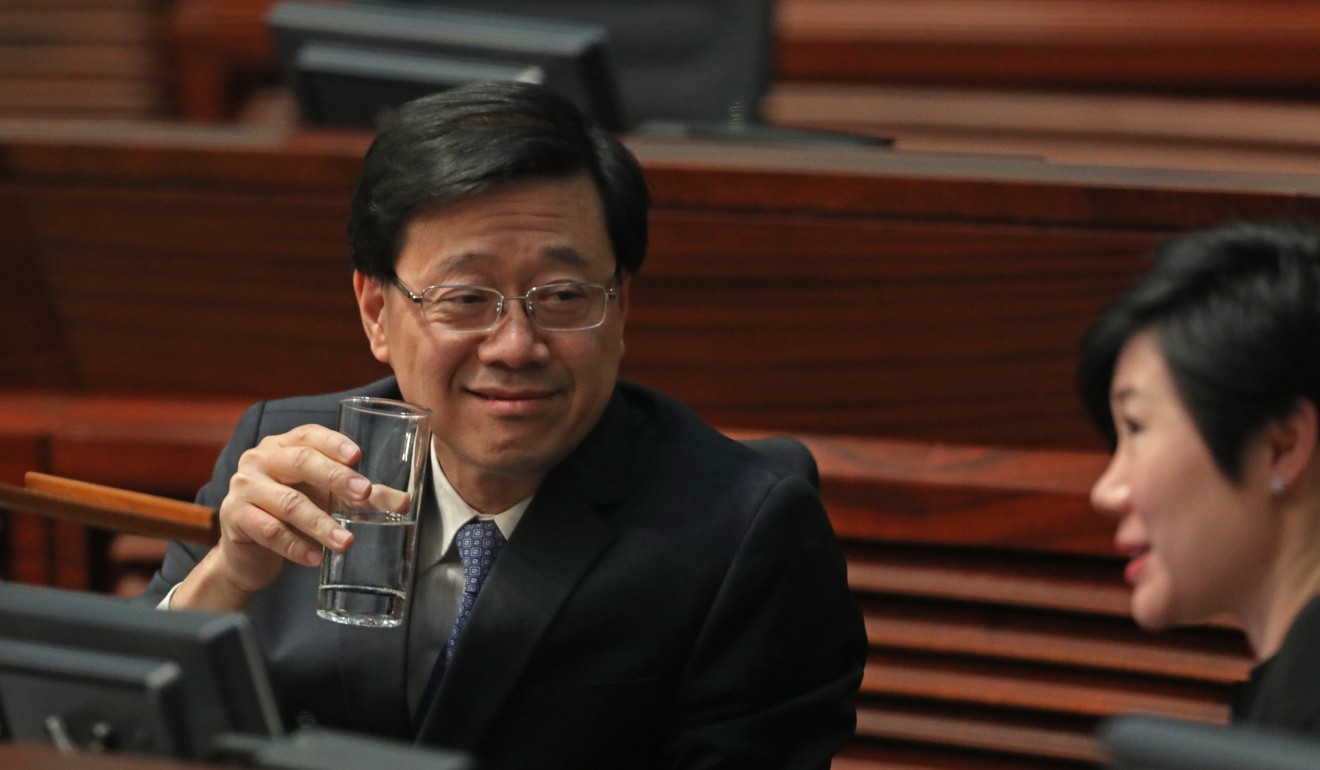Hong Kong close to final deal with Beijing on detention notification system: sources
Moves to improve the reciprocal detention notification mechanism began after five Hong Kong booksellers went missing from October 2015

Hong Kong is expected to get Beijing’s agreement this week on faster notification when its residents are detained, sources said, as Secretary for Security John Lee Ka-chiu headed to Beijing on Wednesday to meet the mainland’s Minister of Public Security Zhao Kezhi.
Two Hong Kong government sources told the Post that an agreement is likely to be reached during Lee’s three-day visit, with Chief Executive Carrie Lam Cheng Yuet-ngor confirming that she would join part of the meeting between Lee and Zhao.
Lam, who will be in Beijing from Wednesday to Friday for her maiden duty visit with state leaders, said Lee and a high-powered delegation would “be visiting the Ministry of Public Security, particularly to discuss the new arrangements of the notification mechanism.”
Lee said before getting on his flight that he hoped both sides could finalise the details of the new mechanism at their meeting on Thursday. However, he did not confirm if or when they would sign a formal agreement.
One of the government sources said that since two rounds of talks between both sides had already taken place, with the first happening in Beijing more than a year ago, a deal was “highly” likely to come this time.
“Given the previous two rounds, the length of time that has lapsed and the size of the delegation, a deal on this occasion is highly possible,” the source said.
Accompanying Lee on the visit are three heads of Hong Kong’s disciplined forces – Hong Kong’s Commissioner of Police Lo Wai-chung, Director of Immigration Tsang Kwok-wai, Commissioner of Customs and Excise Hermes Tang Yi-hoi – and Assistant Director Ken Ho of the Operations Department of the Independent Commission Against Corruption.

There was renewed attention on the reciprocal notification mechanism during the Hong Kong bookseller disappearances, when five men based in the city linked to the Mighty Current publishing company, which specialises in political gossip about Beijing leaders, began to go missing from October 2015.
They eventually turned up in the custody of mainland authorities, and appeared on state media to claim they had gone there voluntarily.
Mighty Current’s co-founder, Gui Minhai, a mainland-born, naturalised Swedish citizen, vanished from Pattaya in Thailand. In October, his long-time friend said he had been released and reunited with his family in the Chinese city of Ningbo.
His publishing associates – Hong Kong residents Cheung Chi-ping, Lam Wing-kee and Lui Por – later went missing while on the mainland. Another associate, Lee Po, disappeared under similar circumstances from Hong Kong.
Lee Po’s case sparked fears he had been kidnapped by mainland agents operating in Hong Kong and that the “one country, two systems” principle under which Hong Kong is granted a high degree of autonomy had been eroded.
The saga led to calls that the mechanism, in place since 2001, be reviewed. That was because mainland authorities only notified Hong Kong police about three weeks after Lee Po disappeared, with anxiety in the city intensifying over the booksellers’ whereabouts.
In July last year, Hong Kong’s justice and security ministers visited Beijing to meet a delegation headed by Guo Shengkun, the public security minister at the time, to discuss how to strengthen the mechanism.
Following that meeting, former Hong Kong leader Leung Chun-ying said both sides agreed to tell each other within 14 days if they detained the other’s residents.
Officials from both sides met again in the same month in Shenzhen city.
After the two rounds of meetings, the official Xinhua news agency reported the mechanism would be strengthened to include language on “adhering to the ‘one country, two systems’ principle, according to the [Chinese] constitution, the Basic Law [Hong Kong’s mini-constitution] and other laws adopted by the two sides”.
But the city’s Security Bureau admitted to the Post in October that both sides were still drafting the text for the enhanced mechanism, under which the mainland must tell the city if Hongkongers are being subjected to compulsory criminal measures – such as detentions or arrests – or have died unnaturally.